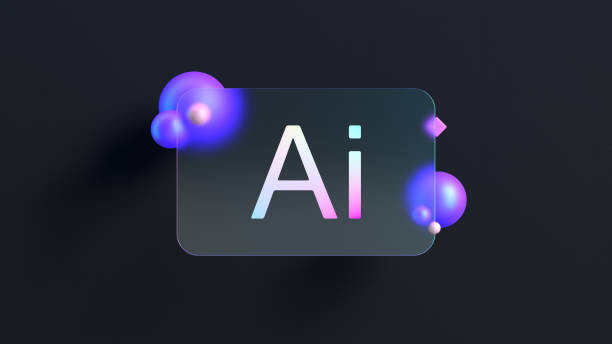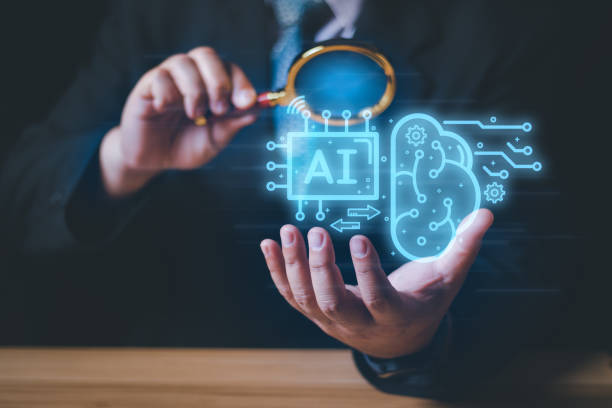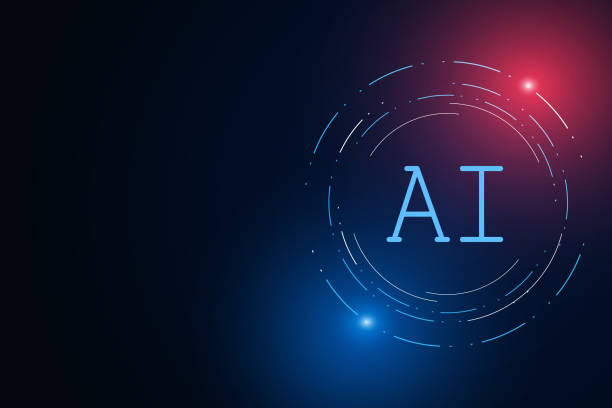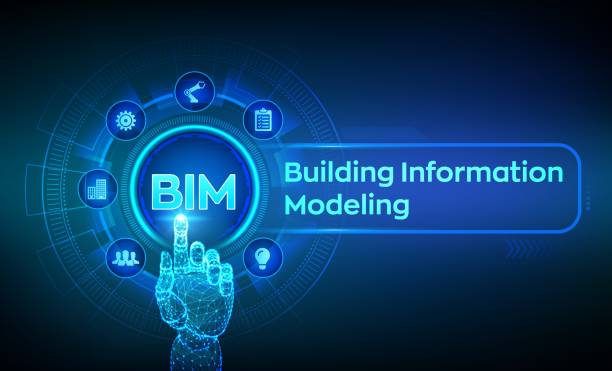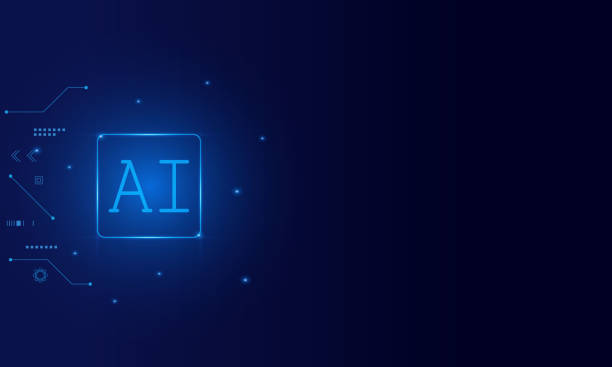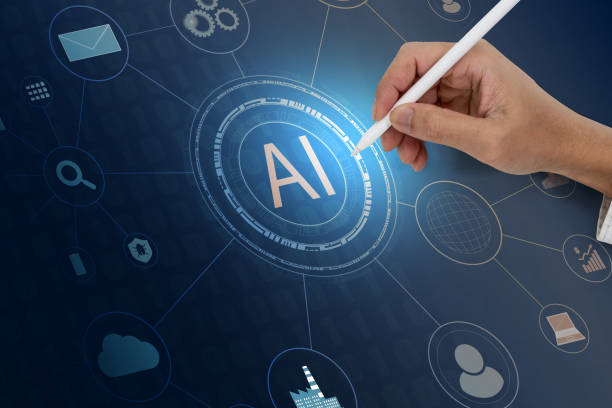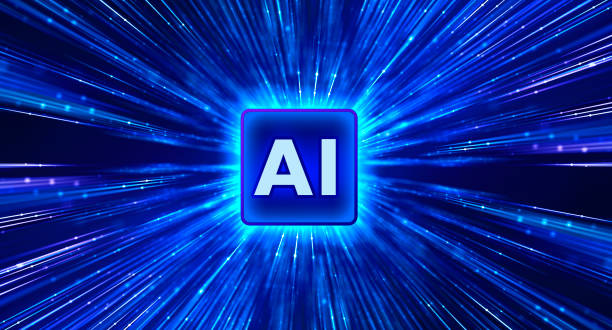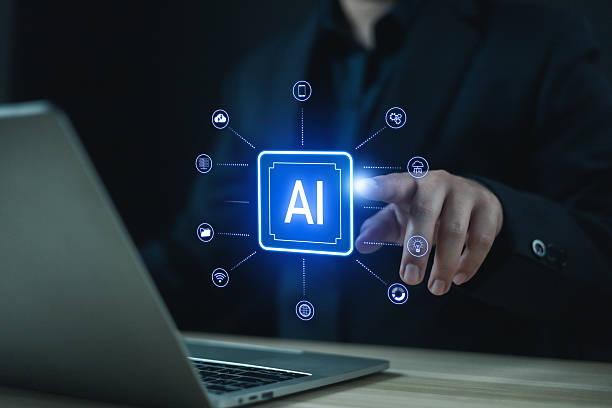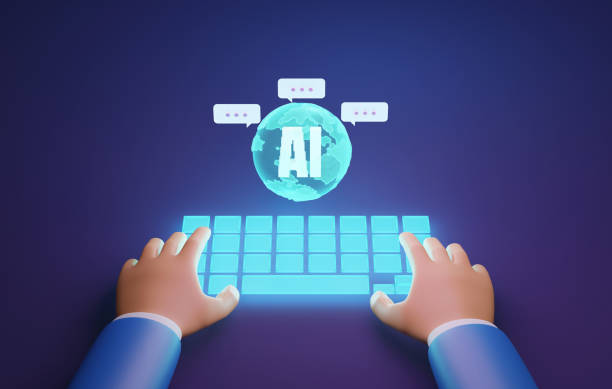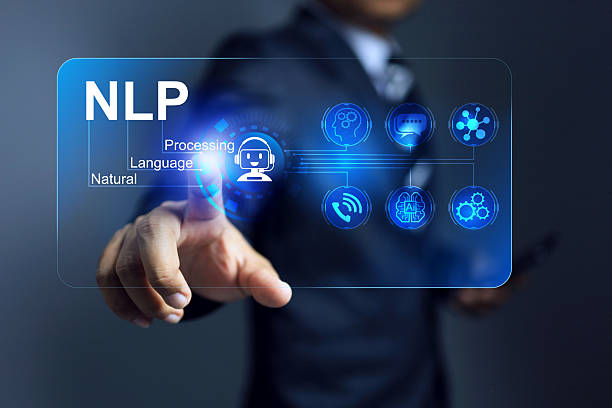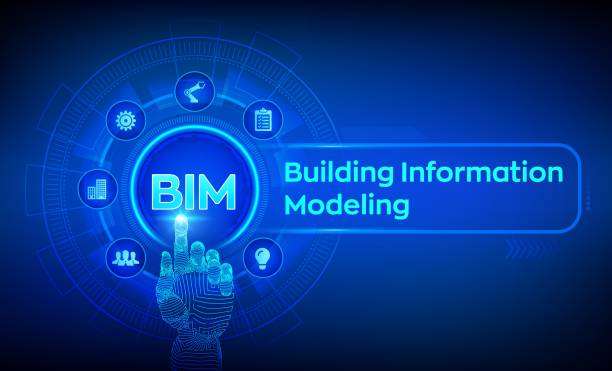What is Artificial Intelligence and Why is it Revolutionizing the Future of Work?
Artificial intelligence (AI) refers to the ability of a computer system to perform tasks that usually require human intelligence.
These tasks include learning, problem-solving, pattern recognition, and decision-making.
Artificial intelligence has various definitions, but essentially, it gives machines the ability to think and act without direct human intervention.
In today’s world, artificial intelligence is rapidly advancing and having a profound impact on various industries and jobs.
This transformation stems from several factors, including the increasing volume of available data, advancements in machine learning algorithms, and the increasing processing power of computers.
These factors have enabled artificial intelligence to perform more complex tasks with greater accuracy and speed.
One of the main reasons for the impact of artificial intelligence on the #future of work is its ability to automate tasks.
Many tasks that were previously performed by humans can now be automated by artificial intelligence systems.
This leads to increased productivity and reduced costs, but also raises concerns about the loss of some jobs.
In the meantime, a correct understanding of the future of work in artificial intelligence and appropriate planning to face these changes is of great importance.
Did you know that your company’s website is the first point of contact for 75% of potential customers?
Your website is the face of your brand. With **Rasaweb’s** corporate website design services, create an online presence that builds customer trust.
✅ Create a professional and lasting image of your brand
✅ Attract target customers and increase online credibility
⚡ Get free consultation from **Rasaweb** experts!
Jobs Most Exposed to Changes Caused by Artificial Intelligence
The impact of artificial intelligence varies on different jobs.
Some jobs will be completely eliminated, while others will experience fundamental changes, and new jobs will also be created.
Jobs that are most at risk typically involve repetitive, routine, and predictable tasks.
For example, telephone operators, data entry clerks, and vehicle drivers are among the jobs likely to be heavily impacted by automation.
In contrast, jobs that require creativity, critical thinking, communication skills, and emotional intelligence are less at risk.
These jobs typically include healthcare professionals, managers, artists, and entrepreneurs.
However, even these jobs can be improved and made more efficient using artificial intelligence tools.
The important point is that the future of work in artificial intelligence is not only a threat to some jobs, but also creates new opportunities.
For example, the development, implementation, and maintenance of artificial intelligence systems require skilled professionals in fields such as data science, machine learning, and software engineering.
Therefore, individuals can benefit from these opportunities by acquiring the necessary skills.
New Jobs That Will Emerge With the Expansion of Artificial Intelligence
The expansion of artificial intelligence not only leads to changes in existing jobs, but also creates new jobs that did not exist before.
These jobs typically require expertise in areas related to artificial intelligence, such as data science, machine learning, robotics, and automation.
Some of the new jobs that are emerging include:
– Data Scientist: Responsible for collecting, analyzing, and interpreting data to extract patterns and insights.
These individuals use machine learning algorithms to solve complex problems and predict future trends.
– Machine Learning Engineer: Responsible for designing, developing, and implementing machine learning models.
These individuals must have a deep knowledge of various machine learning algorithms as well as programming skills.
– AI Ethics Specialist: Responsible for ensuring the ethical and responsible use of artificial intelligence.
These individuals should pay attention to issues related to privacy, discrimination, and transparency in artificial intelligence systems.
– Human-AI Interaction Designer: Responsible for designing user interfaces that allow humans to interact effectively with artificial intelligence systems.
These individuals must have a deep understanding of human psychology and UX/UI design.
Also, the future of work in artificial intelligence requires people who can implement and manage artificial intelligence systems in various industries.
These individuals must have a deep understanding of business processes as well as the technical knowledge required to use artificial intelligence tools.
| Skill | Description |
|---|---|
| Data Science | Collecting, analyzing, and interpreting data |
| Machine Learning | Designing and implementing machine learning models |
| AI Ethics | Ensuring the ethical use of artificial intelligence |
| UX/UI Design | Designing user interfaces for human-AI interaction |
Skills Needed to Succeed in the Age of Artificial Intelligence
To succeed in the age of artificial intelligence, individuals must acquire new skills that go beyond mere technical knowledge.
These skills include critical thinking, problem-solving, creativity, communication skills, and emotional intelligence.
Click here to preview your posts with PRO themes ››
– Critical Thinking: The ability to analyze information, evaluate evidence, and reason logically.
In a world where information is rapidly changing, critical thinking is essential for distinguishing correct information from incorrect information and making informed decisions.
– Problem Solving: The ability to identify and solve complex problems using creative and innovative methods.
In the age of artificial intelligence, new problems will arise that require new and innovative solutions.
– Creativity: The ability to generate new and innovative ideas.
Artificial intelligence can help humans in some creative tasks, but original creativity is still a competitive advantage for humans.
– Communication Skills: The ability to communicate effectively with others, present ideas, and convey information clearly and concisely.
In a world where teams are increasingly dispersed and diverse, communication skills are essential for collaboration and coordination.
– Emotional Intelligence: The ability to recognize and manage one’s own emotions and the emotions of others.
Emotional intelligence is essential for building positive relationships, resolving conflicts, and leading effectively.
In addition to these skills, technical knowledge in areas related to artificial intelligence, such as data science, machine learning, and programming, is also of great importance.
However, the future of work in artificial intelligence requires a combination of technical and soft skills.
Does your current website create the trust that potential customers should have in your business? If the answer is no, it’s time to have a professional and impactful corporate website with Rasaweb.
✅ Completely custom design tailored to your brand identity
✅ Increase lead generation and credibility of your business in the eyes of customers⚡ Contact us for a free consultation!
The Role of Education in Preparing the Workforce for the Future of Artificial Intelligence
Education plays a vital role in preparing the workforce for the future of artificial intelligence.
Educational systems must be updated to familiarize students with the skills needed to succeed in the age of artificial intelligence.
This includes teaching technical skills such as programming, data science, and machine learning, as well as soft skills such as critical thinking, problem-solving, and creativity.
In addition, education should emphasize lifelong learning.
In a rapidly changing world, individuals must constantly learn new skills and adapt to change.
This includes attending online training courses, workshops, and conferences.
Also, educational systems should use artificial intelligence technologies to improve the quality of education.
For example, artificial intelligence-based educational systems can provide personalized learning, provide instant feedback to students, and help teachers assess student performance.
In this regard, recognizing the future of work in artificial intelligence and the needs of the labor market can help educational systems in designing effective educational programs.
The Impact of Artificial Intelligence on Various Industries
Artificial intelligence has a wide range of effects on various industries and changes how they operate.
Some of these effects include:
– Healthcare: Artificial intelligence can help in diagnosing diseases, developing drugs, providing personalized care, and improving the efficiency of hospitals.
For example, artificial intelligence systems can analyze medical images more accurately and diagnose diseases at an early stage.
– Manufacturing: Artificial intelligence can help in automating manufacturing processes, improving product quality, reducing costs, and increasing productivity.
For example, robots equipped with artificial intelligence can perform repetitive and dangerous tasks on production lines.
– Financial Services: Artificial intelligence can help in fraud detection, risk assessment, providing personalized financial advice, and improving customer service.
For example, artificial intelligence systems can identify suspicious patterns in financial transactions and prevent fraud.
– Transportation: Artificial intelligence can help in developing self-driving cars, improving traffic management, and reducing accidents.
Self-driving cars can increase road safety and reduce travel time.
– Retail: Artificial intelligence can help in providing personalized shopping experiences, improving inventory management, and optimizing the supply chain.
For example, artificial intelligence systems can analyze customers’ tastes and preferences and suggest appropriate products to them.
Given these broad impacts, understanding the future of work in artificial intelligence is essential for professionals in various industries.
Ethical Challenges and Opportunities Arising from Artificial Intelligence
The expansion of artificial intelligence creates numerous ethical challenges and opportunities.
Some of these challenges include:
– Discrimination: Artificial intelligence algorithms can be discriminatory if they are trained on biased data.
This can lead to unfair decisions in areas such as hiring, lending, and criminal justice.
– Privacy: Artificial intelligence systems can collect and analyze large amounts of personal data, which can lead to privacy breaches.
It must be ensured that personal data is managed securely and responsibly.
– Transparency: Artificial intelligence algorithms can be complex and incomprehensible, which can lead to a lack of transparency and accountability.
Efforts should be made to make artificial intelligence algorithms more transparent and understandable.
Click here to preview your posts with PRO themes ››
– Accountability: It is difficult to determine responsibility if an artificial intelligence system makes a mistake.
Mechanisms must be created to determine responsibility and compensate for damages in the event of an error.
At the same time, artificial intelligence also creates ethical opportunities.
For example, artificial intelligence can be used to solve social problems such as poverty, disease, and climate change.
Also, artificial intelligence can help create more just and equitable societies.
To benefit from ethical opportunities and reduce challenges, special attention should be paid to the ethical issues of artificial intelligence.
And by being aware of the future of work in artificial intelligence, it can help in the responsible development and use of this technology.
| Challenge | Solution |
|---|---|
| Discrimination | Training algorithms with unbiased data |
| Privacy | Secure and responsible management of personal data |
| Lack of Transparency | Efforts to make algorithms more transparent |
| Lack of Accountability | Creating mechanisms to determine responsibility |
Strategies for Adapting to Labor Market Changes Caused by Artificial Intelligence
To adapt to labor market changes caused by artificial intelligence, individuals and organizations must adopt appropriate strategies.
Some of these strategies include:
– Learning New Skills: Individuals should constantly learn new skills that are needed in the labor market.
This includes technical skills such as programming, data science, and machine learning, as well as soft skills such as critical thinking, problem-solving, and creativity.
– Changing Jobs: Individuals should be prepared to change jobs if their job is threatened by artificial intelligence.
This includes exploring new job opportunities and acquiring the skills needed to do those jobs.
– Entrepreneurship: Individuals can take advantage of new opportunities by creating new businesses in areas related to artificial intelligence.
This includes developing new applications, services, and products based on artificial intelligence.
– Collaborating with Artificial Intelligence: Individuals can increase their efficiency by collaborating with artificial intelligence systems.
This includes using artificial intelligence tools to automate repetitive tasks, analyze data, and make better decisions.
Organizations should also adopt appropriate strategies to adapt to labor market changes caused by artificial intelligence.
This includes investing in employee training and development, creating a culture of innovation, and encouraging the use of new technologies.
In general, understanding the future of work in artificial intelligence and adopting appropriate strategies to adapt to it is essential for success in the new era.
Does your current corporate website not reflect your brand’s credibility and power as it should? Rasaweb solves this challenge for you with professional corporate website design.
✅ Increase the credibility and trust of visitors
✅ Attract more targeted customers
⚡ Click here for a free consultation!
The Future of Work in Artificial Intelligence in Iran: Examining Opportunities and Challenges
The future of work in artificial intelligence in Iran, like the rest of the world, is associated with numerous opportunities and challenges.
Iran has high potential for the development of artificial intelligence, but there are also obstacles that must be overcome.
The existing opportunities include:
– Young and Educated Workforce: Iran has a young and educated population that can provide the workforce needed to develop artificial intelligence.
– Access to Data: Iran has a large volume of data that can be used to train artificial intelligence algorithms.
– Government Support: The Iranian government supports the development of artificial intelligence and implements programs to encourage investment in this area.
The existing challenges include:
– Lack of Investment: Investment in artificial intelligence research and development in Iran is still not sufficient.
– Shortage of Specialists: Iran faces a shortage of skilled specialists in areas related to artificial intelligence.
– Legal and Regulatory Barriers: Some existing laws and regulations may hinder the development of artificial intelligence.
To overcome these challenges and take advantage of opportunities, coordinated efforts between the government, universities, and the private sector must be made.
Also, special attention should be paid to the training and development of the skills needed to develop artificial intelligence.
By considering the future of work in artificial intelligence in Iran, programs can be developed to prepare the workforce and develop this technology.
Key Predictions About the Future of Work in Artificial Intelligence
Given the growing trend of artificial intelligence, the following key predictions about the future of work in artificial intelligence can be made:
– Widespread Automation of Tasks: Artificial intelligence will increasingly automate repetitive and routine tasks, which will lead to a reduced need for labor in some jobs.
Click here to preview your posts with PRO themes ››
– Creation of New Jobs: Artificial intelligence will create new jobs in areas related to data science, machine learning, robotics, and automation.
– Changing the Nature of Existing Jobs: Existing jobs will change and require new skills such as critical thinking, problem-solving, creativity, and communication skills.
– Increased Productivity: Artificial intelligence will increase productivity in various industries and lead to economic growth.
– Importance of Lifelong Learning: Individuals must constantly learn new skills and adapt to changes to remain competitive in the labor market.
– Focus on Soft Skills: Soft skills such as critical thinking, problem-solving, creativity, and communication skills will become more important, as these skills are difficult to replace by artificial intelligence.
These predictions show that the future of work in artificial intelligence requires preparedness and adaptation to changes.
Individuals and organizations must be prepared to face these changes in order to benefit from new opportunities and overcome challenges.
Frequently Asked Questions
| Question | Answer |
|---|---|
| How will artificial intelligence impact the future labor market? | Artificial intelligence automates repetitive jobs, but at the same time will create new and more complex jobs in areas such as development, maintenance, and training of artificial intelligence systems. |
| Which jobs are most at risk of being replaced by artificial intelligence? | Jobs that involve repetitive, rule-based tasks with little need for creativity or emotional intelligence, such as some manufacturing, data entry, and simple customer service jobs, are most at risk. |
| What skills are essential for success in the future workplace with the presence of artificial intelligence? | Skills such as critical thinking, complex problem-solving, creativity, emotional intelligence, data literacy, the ability to work with artificial intelligence, and lifelong learning are of high importance. |
| Will artificial intelligence cause widespread unemployment? | Some jobs will be lost, but history has shown that new technologies, instead of widespread unemployment, reshape the labor market and create new jobs. The need for adaptation and retraining is important. |
| What new job opportunities are emerging with the emergence of artificial intelligence? | Jobs such as Machine Learning Engineer, Data Scientist, AI Ethicist, Human-AI Interaction Designer, and Digital Transformation Consultant are among the new opportunities. |
| What is the role of education in preparing for the future workplace with artificial intelligence? | Education should focus on developing soft skills, computational thinking, digital literacy, and the ability to learn continuously to prepare individuals for future changes. |
| How can I prepare myself for the labor market changes caused by artificial intelligence? | You can prepare yourself by learning new skills related to artificial intelligence and data, strengthening soft skills, developing critical thinking and creativity, and getting into the habit of lifelong learning. |
| Will AI ethics become an important career field? | Yes, given the increasing concerns about biases, privacy, and automated decision-making of artificial intelligence, the role of AI ethics specialists will become crucial to ensure its responsible development. |
| What is the importance of human-AI collaboration in the future workplace? | Human-AI collaboration, rather than competition, shapes the future of the labor market. Artificial intelligence can be a tool to increase productivity and focus humans on more complex and creative tasks. |
| Which industries will be most affected by artificial intelligence? | Almost all industries will be affected, but areas such as healthcare, finance, transportation, manufacturing, education, and customer service are pioneers in the adoption and transformation by artificial intelligence. |
And other services of Rasa Web advertising agency in the field of advertising
Intelligent UI/UX: Transform customer attraction with the help of customizing the user experience.
Intelligent SEO: A creative platform to improve online growth with intelligent data analysis.
Intelligent UI/UX: A fast and efficient solution to attract customers by focusing on attractive user interface design.
Intelligent Data Analysis: A fast and efficient solution to increase sales by focusing on attractive user interface design.
Intelligent Custom Software: Transform website visits with the help of intelligent data analysis.
And more than a hundred other services in the field of internet advertising, advertising consulting, and organizational solutions
Internet Advertising | Advertising Strategy | Advertorial Report
Resources
? At Rasa Web Digital Marketing Agency, we help your business shine in today’s competitive world and achieve its goals. From multilingual website design to search engine optimization and social media management, we are with you to have a powerful presence in the online space.
📍 Tehran, Mirdamad Street, next to the Central Bank, South Kazeroon Alley, Ramin Alley, No. 6

